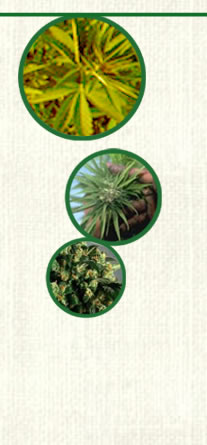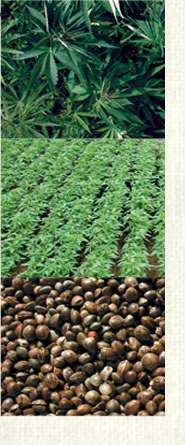



| "It is a green, very abundant and ubiquitous plant. It is surprisingly precious from an economical point of view, it is potentially dangerous and certainly mysterious under many aspects" (Schultes, 1970). Hemp is an annual field crop. It is very productive and has been
successfully grown in many different environments - from Finland
to South Africa, and Canada to Australia. For this, indeed, hemp
can be considered as ubiquitous. In recent years many countries have begun to reconsider the restrictions
imposed on hemp cultivation since textile and paper industries have
expressed interest in hemp, there is a need to diversify cropping
systems and hemp is recognised as a crop that can be grown with
minimal negative environmental impact. Scientific research on hemp
cultivation, and especially on its processing, has consequently
intensified over recent years. Research has also targeted hemp as
a natural raw material for replacing petrochemicals.
|
| Home | Company | Agricolture
| Industry | Hemp Crop |
Research | Link
| News e Downloads | Italiano Copyright © 2001
- Gruppo Fibranova S.r.l. - Via Antonio Gramsci n° 52 int. 18 - 56031 - Bientina (PI) Italia |